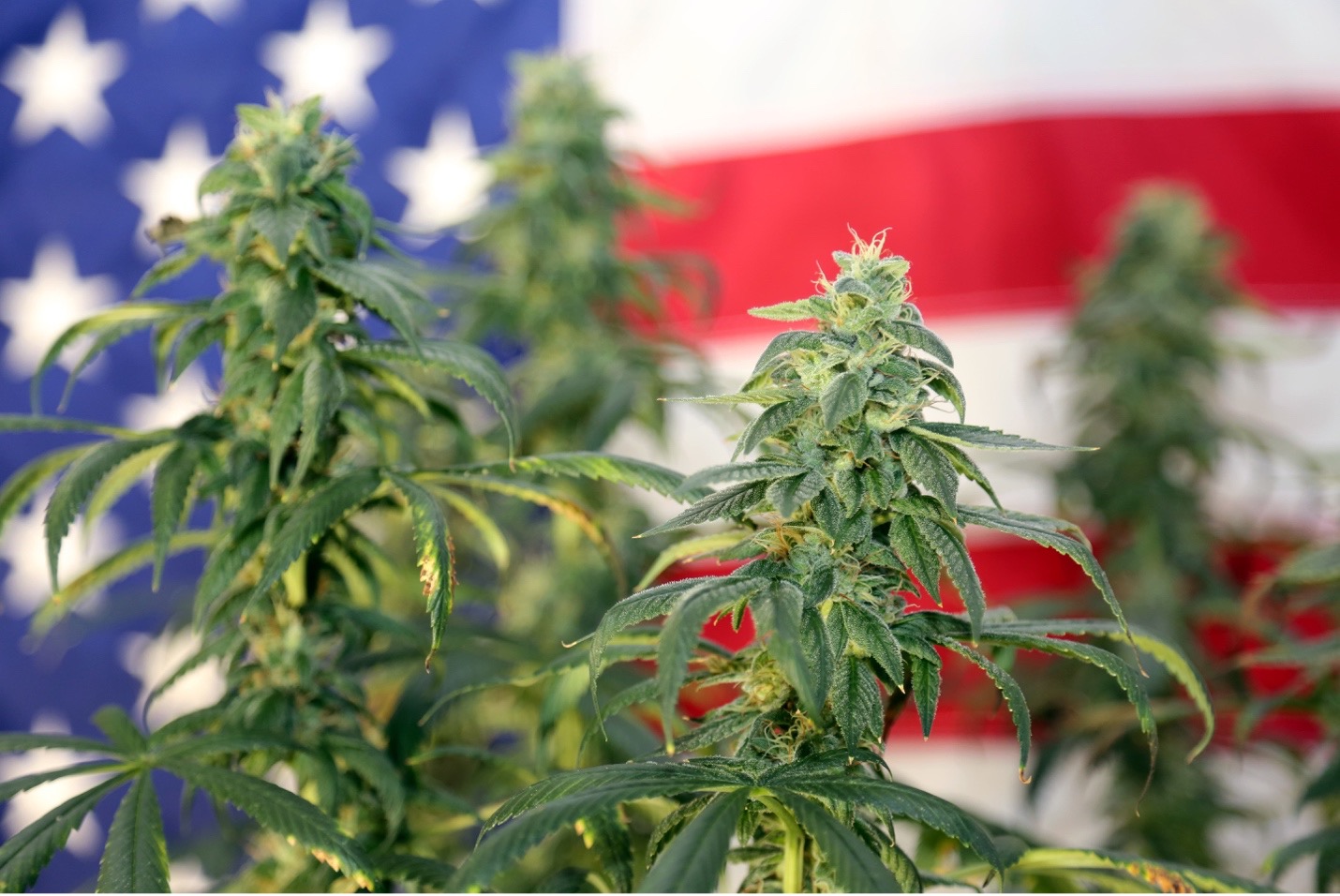By: Bernard Wolfsdorf, Joseph Barnett, and Robert Blanco
USCIS has issued new policy guidance to clarify that violations of federal controlled substance law, including violations involving marijuana, are generally a bar to establishing good moral character for naturalization, even where that conduct would not be an offense under state law. The policy guidance clarifies that an applicant for U.S. naturalization who is involved in certain marijuana-related activities may lack good moral character if found to have violated federal law, even if such activity has been decriminalized under applicable state laws. With marijuana use directly impacting U.S. naturalization determinations, it is critical that immigrants understand the U.S. federal immigration laws’ policies towards marijuana. Moreover, such use may render a green card holder inadmissible, and possibly removable.
Here are 5 things to know:
1. Marijuana is a Schedule I Drug. Federal law classifies marijuana as a “Schedule I” controlled substance like heroin or LSD. The growing or manufacture, distribution, dispensing, or possession of marijuana may lead to negative immigration consequences, even though numerous states have enacted laws permitting medical or recreation use of marijuana. It is irrelevant that since 1996, several states and the District of Columbia have enacted laws to decriminalize the cultivation, possession, distribution, and use of both medical and non-medical (recreational) marijuana in their respective jurisdictions. Also, the violation of federal controlled substance law may be established by a conviction or a mere admission of use. If a non-U.S. citizen admits to smoking or consuming marijuana, they can be refused admission, or possibly become inadmissible if they continue to use.
2. Inadmissibility.U.S. immigration law is extremely harsh. As we previously blogged, the Immigration and Nationality Act of 1990, states that any alien who a consular office knows or has reason to believe is or has been an illicit trafficker in any “controlled substance,” or is or has been a knowing aider, abettor, assister, conspirator, or colluder with others in the illicit trafficking in any such controlled or listed substance or chemical, or endeavored to do so is inadmissible. This includes offenses beyond simple possession of marijuana and also include all parts of a marijuana plant, whether growing or not; the seeds thereof; the resin extracted from any part of such plant; and every compound, manufacture, salt, derivative, mixture, or preparation of such plant.
3. Green Card Waiver Waivers. You will not be eligible for a waiver if you are inadmissible for drug trafficking or for any drug crime (other than an offense related to simple possession of 30 grams or less of marijuana). To qualify for a waiver, you must have been convicted of a single offense of simple possession of 30 grams or less of marijuana or more than 15 years have passed since you committed the crime. There is however a second requirement to get this waiver. If you are applying for a waiver based on the passage of 15 years, you will need to show that you have been rehabilitated and that your admission is not contrary to the welfare, safety, or security of the United States. If you are applying based on having a “qualifying relative” it is necessary to prove the relative would experience extreme hardship if you are not admitted to the United States. A qualifying relative means a spouse, parent, son, or daughter who is a U.S. citizen or lawful permanent resident. U.S. immigration officials may consider a variety of factors to decide whether your qualifying relative would suffer extreme hardship, such as medical, financial, educational, personal, and physical concerns.
4. Nonimmigrant Waiver. A nonimmigrant waiver, under §212(d)(3) for persons who are otherwise inadmissible may be possible but passage of time since use and rehabilitation are often key requirements to success. According to CBP, the exercise of authority to grant a waiver is discretionary and the granting of an application for advance permission to enter as a nonimmigrant pursuant to Section 212(d)(3) is considered on the merits which include the presence of extenuating or mitigating circumstances. The applicant bears the burden of establishing that the waiver should be granted in the exercise of discretion. Adjudicators are supposed to decide by balancing a.) the risk of harm to society if the applicant is admitted; b.) the seriousness of the underlying cause of the applicant’s inadmissibility, and c.) the nature of the applicant’s reason for wishing to enter the United States. CBP says that it also considers the following factors in exercising discretion (1) the nature of the offense; (2) the circumstances which led to the offense; (3) how recently the offense occurred; (4) whether it was an isolated incident or part of a pattern of misconduct; and (5) evidence of reformation and rehabilitation. Port parole is available in emergent circumstances. Port parole is a discretionary grant of entry (but not admission).
5. Our Advice. Unless you are a U.S citizen stay away from marijuana or it could have adverse immigration consequences. If you critically need medical marijuana for example to control seizures, and there is no substitute, get a legal consult to advise regarding the consequences, but do not expect good results. If you are a foreign national, do not carry marijuana, a medical marijuana card, or marijuana stickers, t-shirts, etc. Be careful regarding texts or photos relating to marijuana from your social media and on your phone. If you have used marijuana or worked in the industry, get legal counsel before leaving the United States or applying for naturalization or immigration status as you may face eligibility issues. Be aware that admissions made involving marijuana with immigration, border, consular, or law enforcement authorities may render you inadmissible. We do not advise foreign nationals to refuse to cooperate, so each case must be handled by competent counsel. On the positive side, there may be health benefits from refraining.
Wolfsdorf Rosenthal has written extensively on marijuana use by U.S. immigrants. To read more, click


